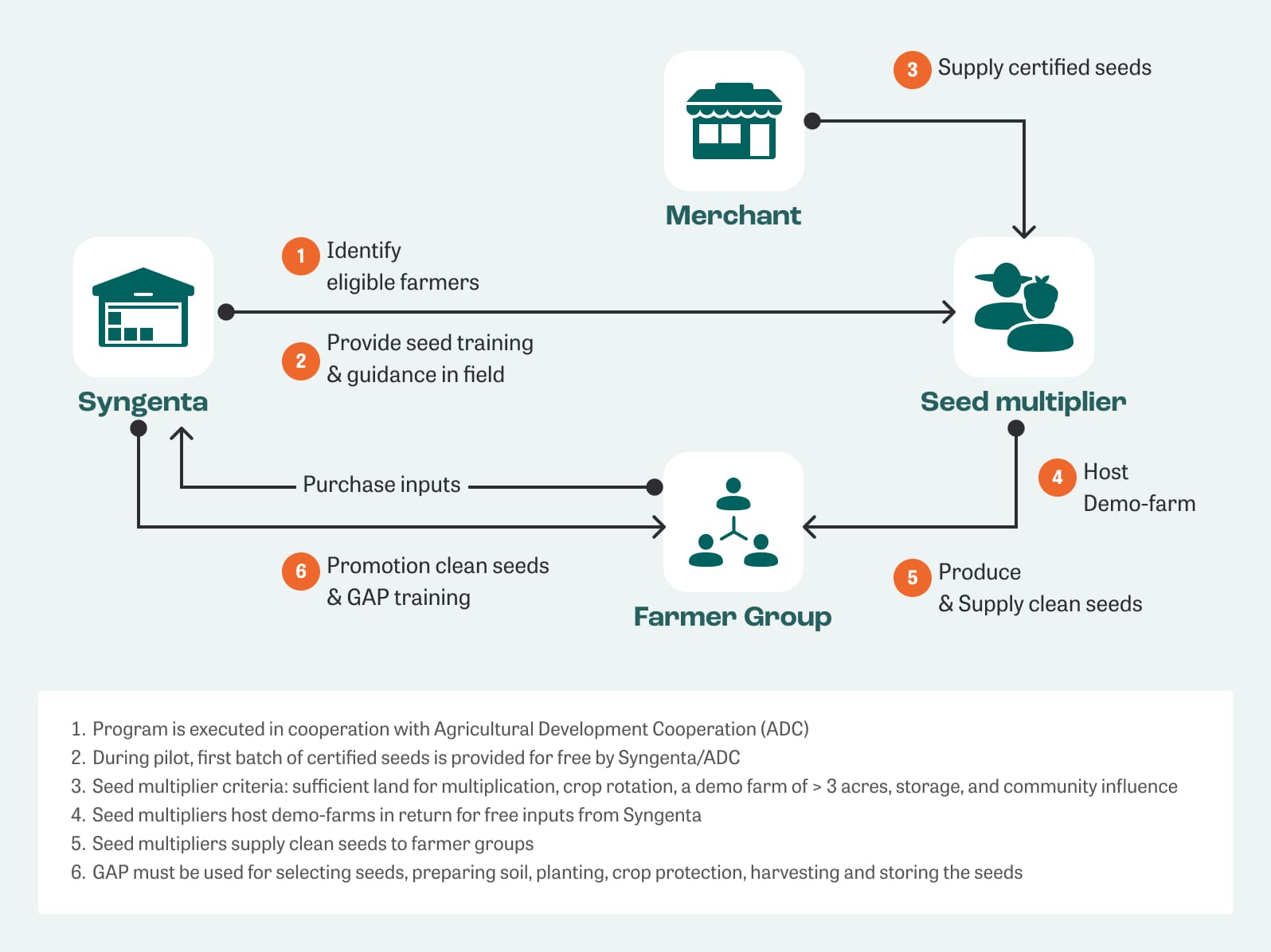Solving Quality Seeds Shortages Through Farmer-led Seed Multiplication
What is the Innovation?
Key Challenges Addressed
Like many other input providers across Sub Saharan Africa, Syngenta operates in a market where smallholders access 90% of their potato seeds through informal channels (e.g. farm-saved seeds and seeds purchased from local markets, neighbours, and relatives). The continuous recycling of seeds negatively impacts agricultural productivity due to increased prevalence of pests and diseases as well as compromised seed quality. Insufficient access to good quality seeds is a dominant reason for low potato yields in Kenya, where only 1% of potato crop land area is planted with certified seeds. Access is limited due to poor availability and high costs. Syngenta’s efforts in supporting farmer-led seed multiplication to produce clean seeds in the absence of certified seeds can improve the affordability and quality of seeds, boosting productivity and farmer incomes. This increases farmers’ incentive to purchase quality fertilizer and crop protection, such as that of Syngenta, to take care of their investment and further enhance productivity and income.
How it Works

Tips for Replication
Context
- Restrictions may apply for multiplication processes and clean seed sales through formal markets. Consult National regulatory frameworks.
Best Practices
- Soil testing to mitigate risk of soil degradation when using agrochemicals for production of clean seeds
- Aligning seed varieties with market demand
- Bundling input support with market access to ensure farmers can continue to afford using clean seeds
- Distributing clean seeds within farmer groups for own use and avoiding commercial seed selling (legal grey area)
Enabling Conditions
- Initial access to certified seeds
- Group membership enables farmers to collectively invest in certified seeds (often delivered in bulk) and gives access to Syngenta's seed multiplication training
- Producing clean seeds requires economically resilient farmers to deal with volatility of input prices
Business Case
Expected Outcomes for Syngenta
Increased Input Sales
Potential repeat customers
Eliminiation of Credit Risk
Impact Case
Higher Yields
Increased decision making power for women
Improved Market Access
Next on the learning Agenda
Investigate persistent challenges and potential risks of the farmer led seed multiplication model:
- How can farmers make sustainable business from multiplying seeds when selling clean seeds through formal channels considered a "legal grey area"? What is the business case for farmers if they were to operate as a licensed seed multiplier?
- What are the most effective approaches to closing the seed gap in the sector?
Data Sources & Disclaimer
Information is based on IDH’s Service Delivery Model (SDM) analysis for Syngenta including data Syngenta and 316 farmers (information is available on our methodology for SDM Analyses and Farmer Surveys). Additionally, company interviews and focus groups with farmers have been held since the start of Technical Assistance (2021) during which the innovation is tested and scaled. A longer time span and additional data are needed to verify and quantify impacts. Farmfit will conduct an end-line assessment of the company’s SDM and farmer livelihoods based on a repeat data collection at company and farm level.
Your Insights Hub journey has just started
Sign up here for access to updates - and industry insights and innovation - from the Smallholder Inclusive Business Newsletter.